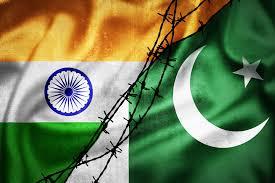
Introduction
In Pakistan, access to clean drinking water is a growing concern. From urban cities like Karachi and Lahore to rural villages in Sindh and Balochistan, millions of people rely on contaminated water sources. What many don’t realize is that unsafe drinking water is one of the leading causes of disease and poor health in the country. In this article, we explore why clean water is essential, what health problems contaminated water causes, and how individuals and communities can protect themselves.
Why is Clean Water So Important?
Water is essential for every cell in your body. You need clean water to:
- Stay hydrated
- Flush out toxins
- Aid digestion
- Maintain healthy skin and energy levels
- Prevent disease
When water is contaminated, it can carry harmful bacteria, viruses, and chemicals—leading to serious health problems.
Health Risks of Dirty or Contaminated Water
1. Diarrhea and Dehydration
Contaminated water is the leading cause of diarrhea, especially in children. Severe diarrhea can lead to dehydration, which is life-threatening if untreated.
2. Typhoid and Cholera
These bacterial infections spread rapidly in areas with poor sanitation and untreated water.
3. Hepatitis A and E
Water contaminated with sewage can carry viruses that infect the liver.
4. Worms and Intestinal Parasites
Dirty water can carry worms, Giardia, and other parasites, leading to malnutrition, anemia, and weakness.
5. Fluoride and Arsenic Poisoning
In some parts of Pakistan, underground water has dangerously high levels of fluoride and arsenic, which can lead to bone deformities, skin conditions, and even cancer over time.
The Situation in Pakistan
- According to UNICEF, only about 36% of the Pakistani population has access to safe drinking water.
- Major cities face issues of old pipelines mixing with sewage.
- In rural areas, people often drink from rivers, ponds, or uncovered wells.
- Water tankers and bore water are often untested and unregulated.
Signs Your Water May Be Unsafe
- Bad smell or taste
- Yellow or brown color
- Floating particles or cloudiness
- Sudden family illness (especially stomach-related)
Even clear water can be unsafe if it contains invisible bacteria or heavy metals.
How to Ensure Safe Drinking Water at Home
1. Boiling
Boil water for at least 5–10 minutes to kill bacteria and viruses.
2. Use Water Filters
Install a home water filter—RO systems or ceramic filters are effective.
3. Water Purification Tablets
These are especially useful in rural areas or during floods.
4. Regular Cleaning of Water Tanks
Clean your water tank every 3–6 months to prevent buildup of dirt and germs.
5. Store Water Safely
Use clean, covered containers and avoid dipping hands or unwashed utensils in drinking water.
What the Government and Communities Can Do
- Improve water testing and monitoring systems
- Build more water treatment plants
- Educate people about water hygiene and boiling methods
- Repair and upgrade water supply pipelines
- Promote rainwater harvesting and safe well construction
Final Thoughts
Clean water is not a luxury—it’s a basic human right. In Pakistan, where waterborne diseases continue to harm millions, taking personal and community steps toward water safety can prevent suffering and save lives. Don’t wait until someone in your family gets sick—make clean water a daily priority.